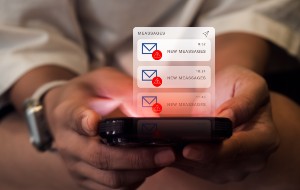Table of contents
- Can apps spy on you
- What information can spying programs collect on you
- List of programs that spy on you
- 1. mSpy
- 2. CamScanner
- 3. Eyezy
- 4. Spynger
- 5. Scannero
- 6. DoorDash
- 7. Clevguard
- 8. Tinder
- 9. Ring doorbell
- 10. SpyBubblePro
- 11. Phonsee
- 12. Highster Mobile
- 13. Geofinder
- 14. Candy Crush Saga
- 15. Facebook
- 16. WhatsApp
- 17. Instagram
- 18. Angry Birds 2
- 19. Zombie Mod
- What are the categories of programs that can spy on you
- 1. Spyware
- 2. Dating apps
- 3. Flashlight apps
- 4. Children's apps
- 5. Social media apps
- 6. Weather apps
- 7. Ring doorbell app
- 8. Shopping apps
- 9. Navigation apps
- 10. Browsers apps
- How to protect against spy apps
- Conclusion
Can apps spy on you
Yes, apps can spy on you. There are various apps that spy on you, from malicious spyware to seemingly harmless apps that use invasive privacy tactics to track your activities. Sometimes, people discover this only after noticing signs their spouse is spying on their phone. On the other hand, you've got legitimate apps you may have installed that use privacy-invasive tactics to collect data.
What information can spying programs collect on you
Spy apps can collect various types of information depending on their purpose. These spying programs might track your location, record text messages, call logs, and more. Advanced spy tools can also tap into your phone calls, read your files, and capture what goes on on your screen.
Other spy apps can be more subtle. They may record data like device usage habits and sell it to third parties. Some apps could even be a medium for people to stalk you online.
Clario Anti Spy is an anti-spyware solution that can detect apps that spy on you and prevent monitoring tools from getting on your phone.
To protect yourself from such threats, Clario Anti Spy offers a robust solution to detect and block apps that spy on you. With its Anti-Spy Setup, Clario helps ensure your privacy by allowing you to control which apps have access to sensitive data. By using this tool, you can prevent monitoring tools from gaining unauthorized access to your phone. Here is how to use Clario Anti Spy's Anti-spy setup:
- Download Clario Anti Spy and create an account.
- On the home screen, look for Anti-spy setup. Press Set up when you find it.
- You’ll now see a list of actions you can take to make your device less vulnerable. Go through each action step-by-step until you’ve completed the process and secured your phone.
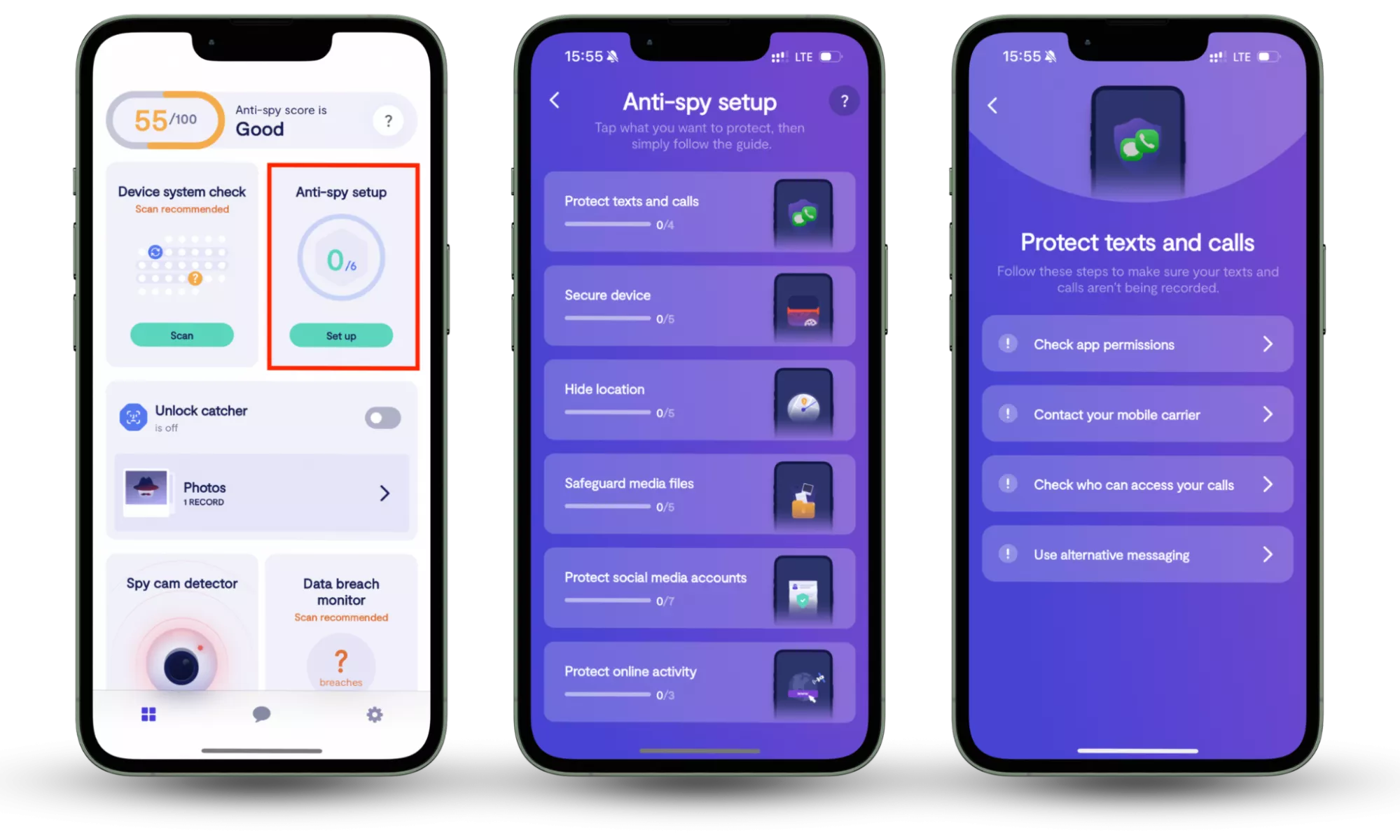
Clario Anti Spy has many other security features, such as an anti-spy setup to improve privacy and a device system checker that monitors security vulnerabilities. It's also capable of identifying jailbreaks on iOS devices.
List of programs that spy on you
Here’s a list of apps that spy on you. It's not exhaustive, but it should give you an idea of how spy apps work. Let's dive in.
1. mSpy
mSpy is a location tracking app that "helps you locate your family, kids, friends, and loved ones," but it's one of the most misused when someone wants to spy on you. The main reason is that it's available for download on both the App Store and the Play Store, so a person who knows your phone's passcode can quickly install it when you aren't looking. This makes it essential to know how to find mSpy on iPhone to protect your privacy.
mSpy allows the spy to:
- Track your location and receive alerts if you leave an area like your home or office
- Access detailed information about your call logs (outgoing and incoming calls, names of people you talk to, duration of your calls, etc.)
- Read your text messages
- Access media files (photos and videos)
- Access keystroke records and receive alerts for specific words you type
- See what goes on with your phone's screen
- View your calendar activities
- Look at the Wi-Fi networks you connect to
- See what websites you visit and the apps you install
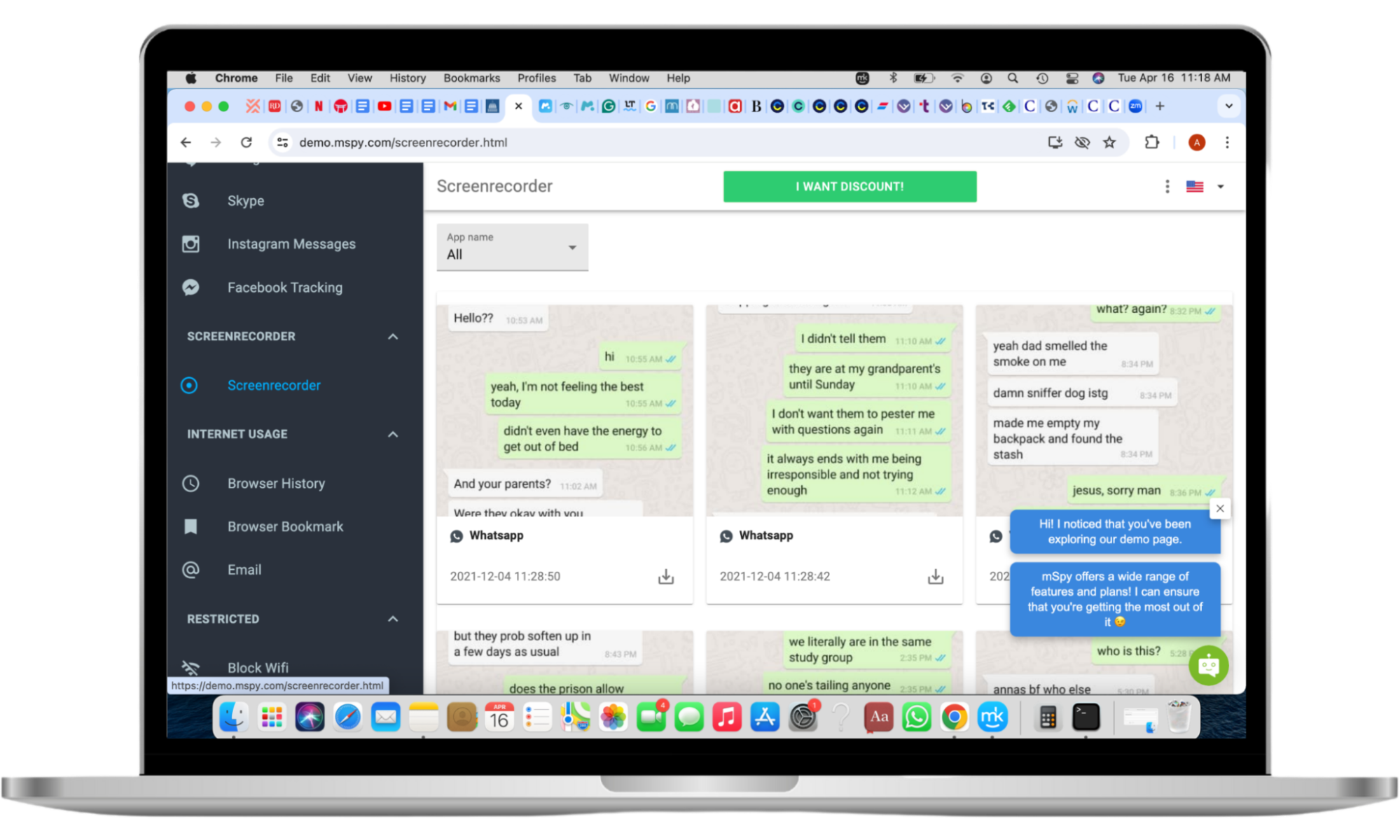
2. CamScanner
The OCR app CamScanner has over 100 million downloads on the Play Store alone. But back in 2019, researchers at Kaspersky found a trojan in CamScanner's code that triggered intrusive ads and coerced users into signing up for paid subscriptions. CamScanner has since cleaned up its act, but it shows that you can't judge an app by its popularity.
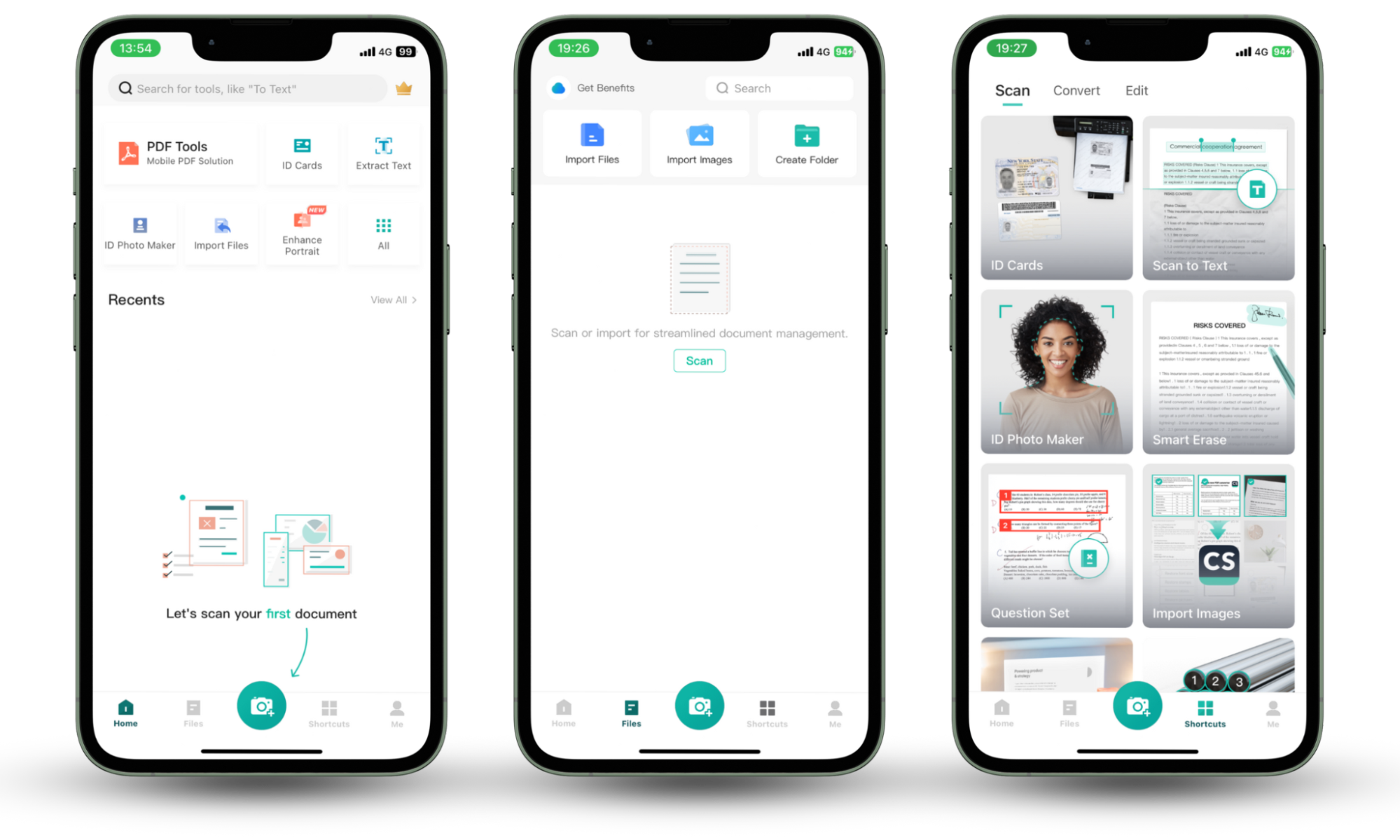
3. Eyezy
EyeZy is a parental control app that can double up as a harmful spy tool in the wrong hands. Like mSpy, it can broadcast your location, send geofence alerts, and relay device usage stats. It's available in the official app stores for iPhone and Android.
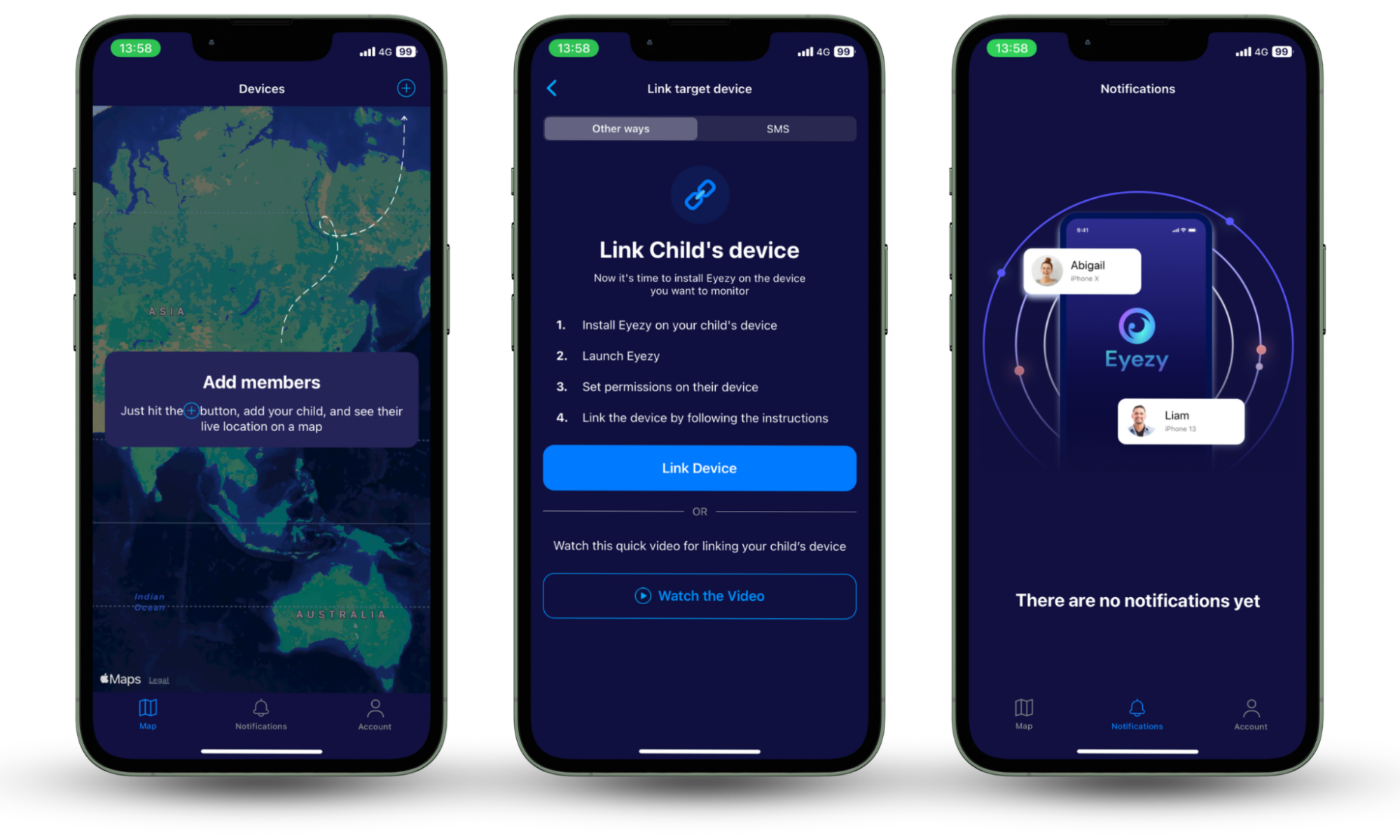
4. Spynger
Spynger markets itself as a "spouse cheating tracker." It can run silently on iOS and Android devices, collect GPS data, log keystrokes, and spy on messaging apps. Anyone who wants to use Spynger to spy on you must physically access your phone and follow specific instructions from the developer to install the tool.
5. Scannero
Scannero is a web-based location-tracking service that claims to locate a person using their phone number. While it's impossible to track someone's location with just a phone number, Scannero uses an invasive method that sends a text message and a link to the target phone. If the person receiving it taps the link, Scannero may get a bead on the device's location.
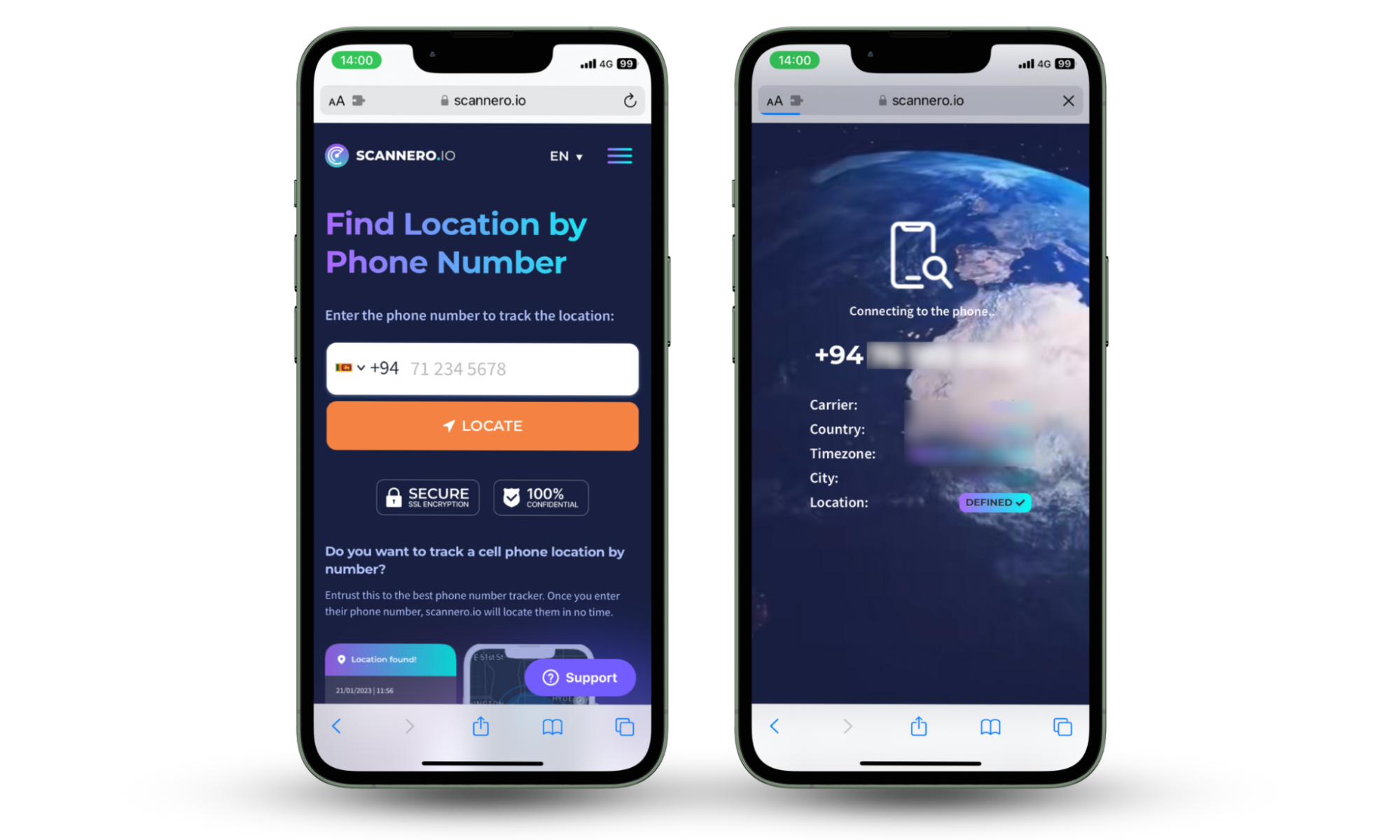
6. DoorDash
California's attorney general recently fined Doordash for selling customer information. If you have the app on your phone, you probably should limit how much of your data it can access. Dialing down DoorDash's GPS permissions is a good way to begin because the app is known for pinging location services even when not in use.
Here's how to manage location services for DoorDash:
- Open the Settings app and tap DoorDash (iOS) or Apps > DoorDash > Permissions (Android).
- Tap Location Services.
- Pick an option like While Using the App or Ask Every Time.
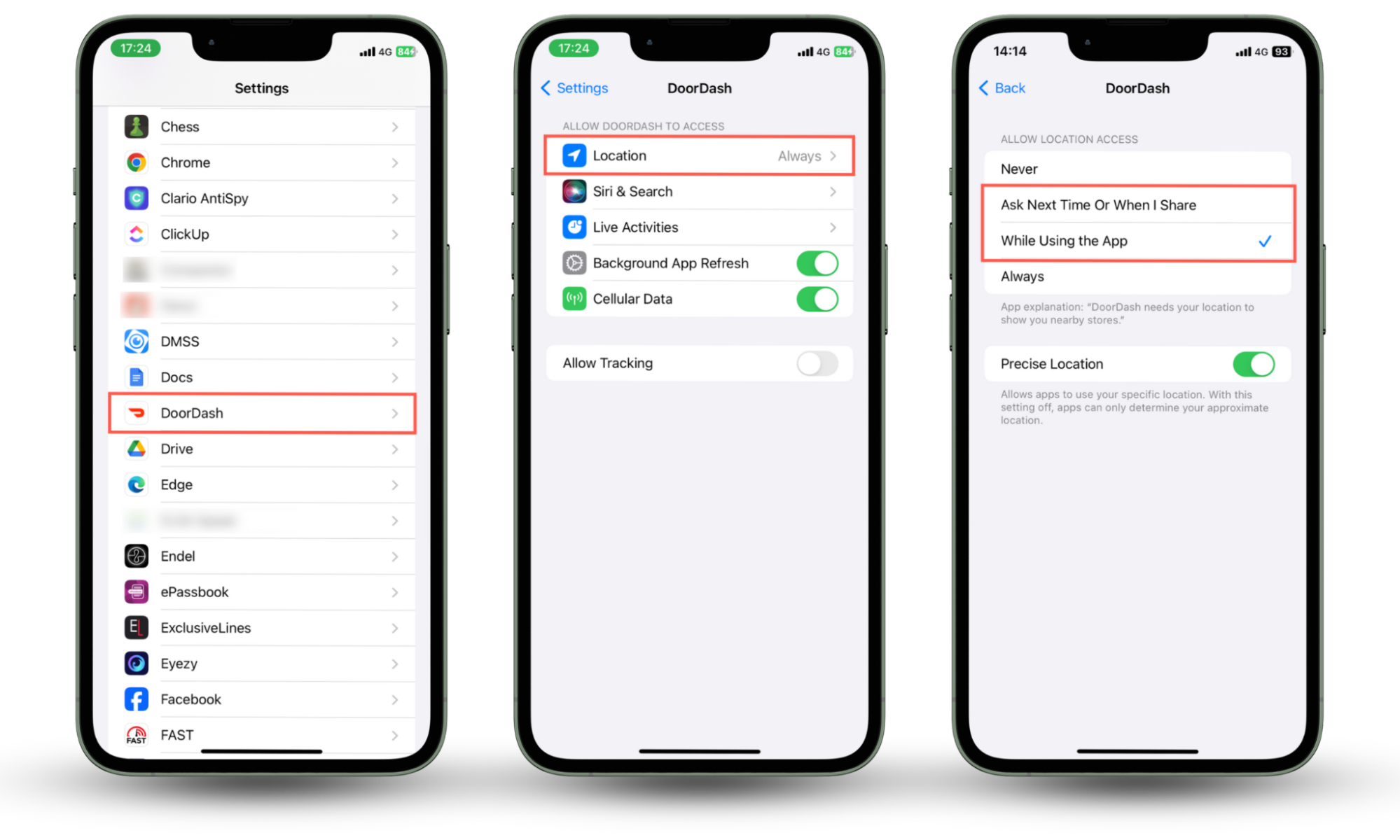
7. Clevguard
ClevGuard's KidsGuard Pro is an app for monitoring children, but its parental control features are easy to misuse. If someone installs it on your phone without your knowledge, it can spy on your location, phone calls and texts, and conversations from instant messaging apps.
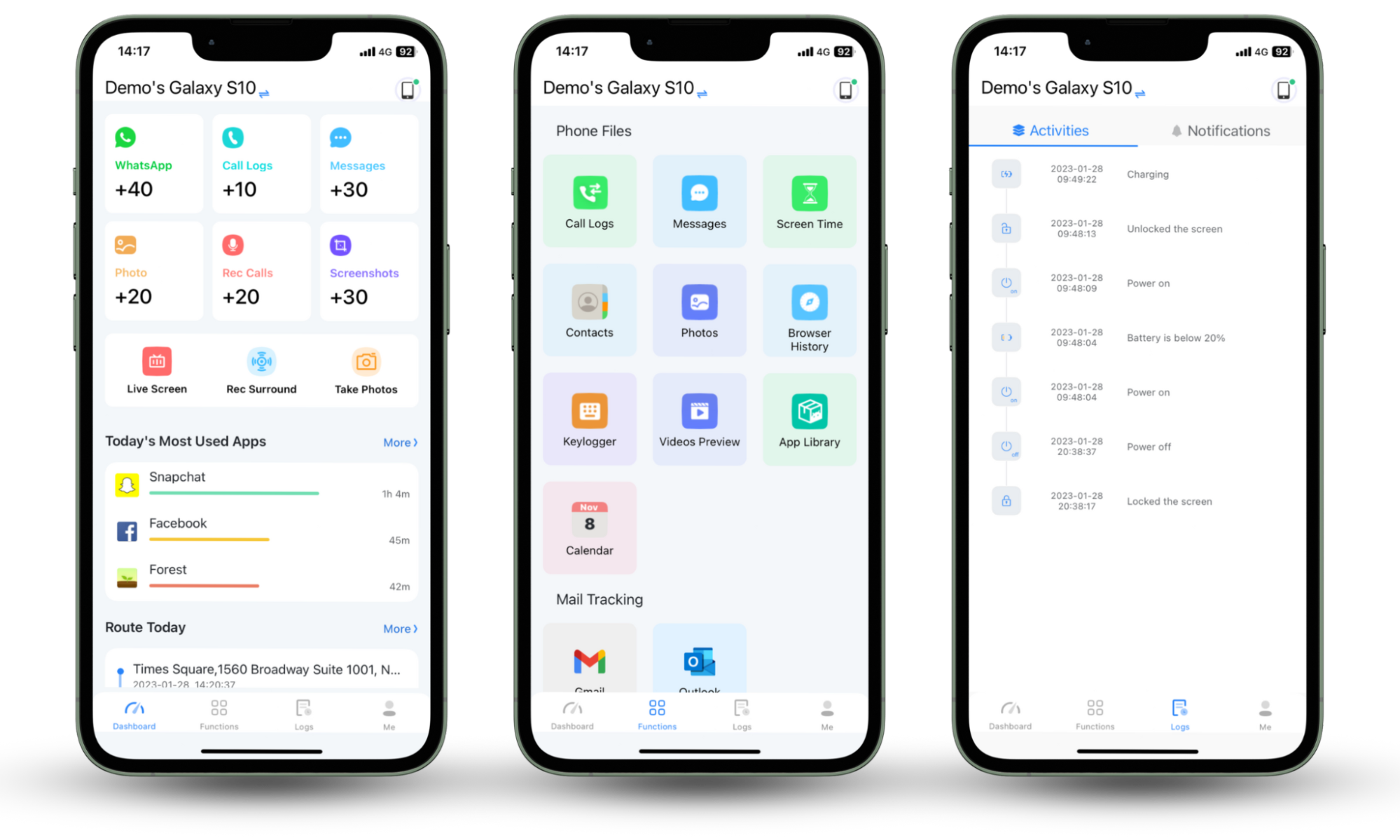
8. Tinder
Do you use Tinder? It has loads of sensitive information to build a detailed profile of you. It already knows your name, age, location, sexual orientation, and interests. The more you use it, the more it knows about you.
Unfortunately, Tinder is not transparent about what it does with all of that data. It's been caught up in GDPR violations, and the FTC has investigated its parent company, Match.com. There are also suspicions that Tinder profiles and discriminates against users.
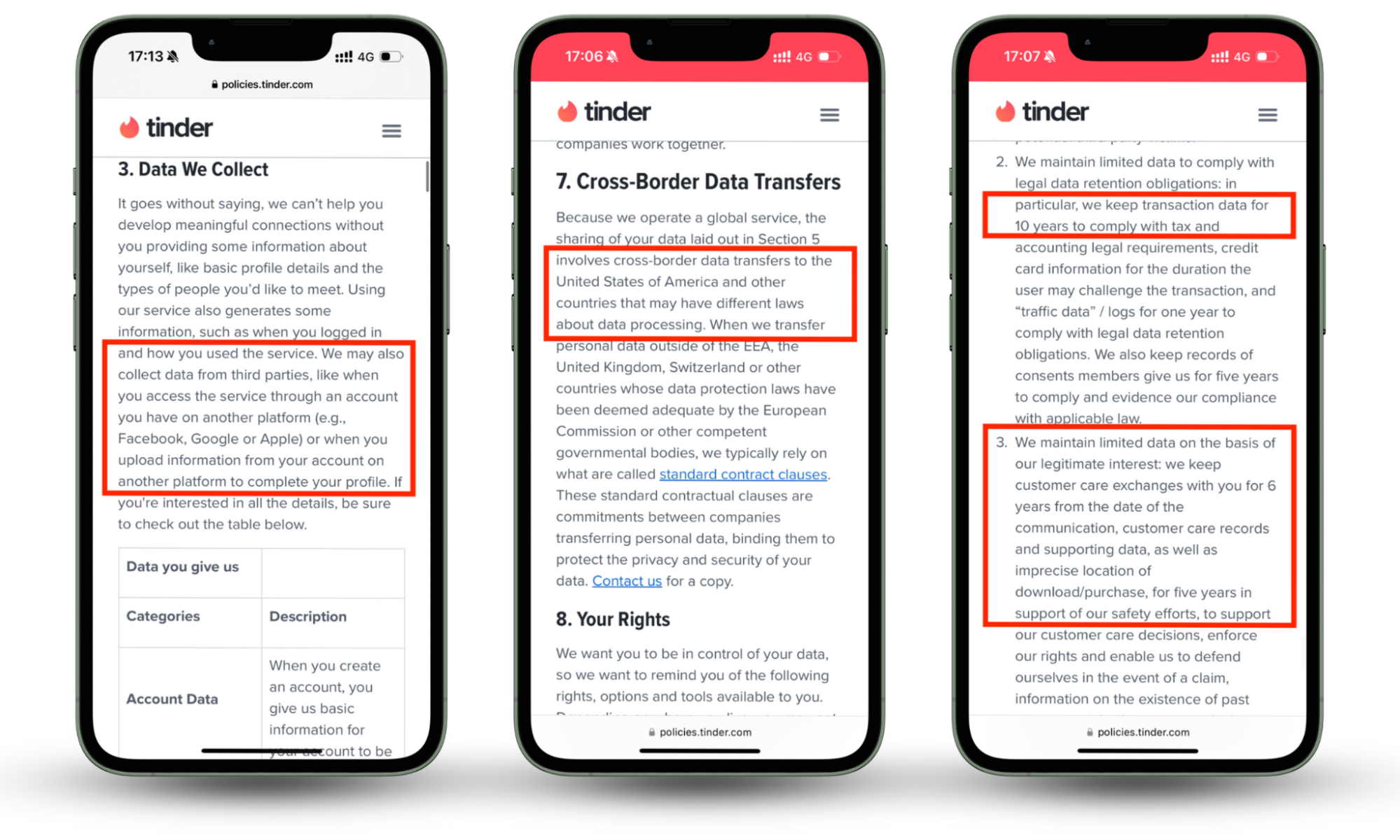
Be careful!
Even though Tinder claims it keeps your data for some time after you delete your account, it might not let you delete it in the first place (see the screenshot below).
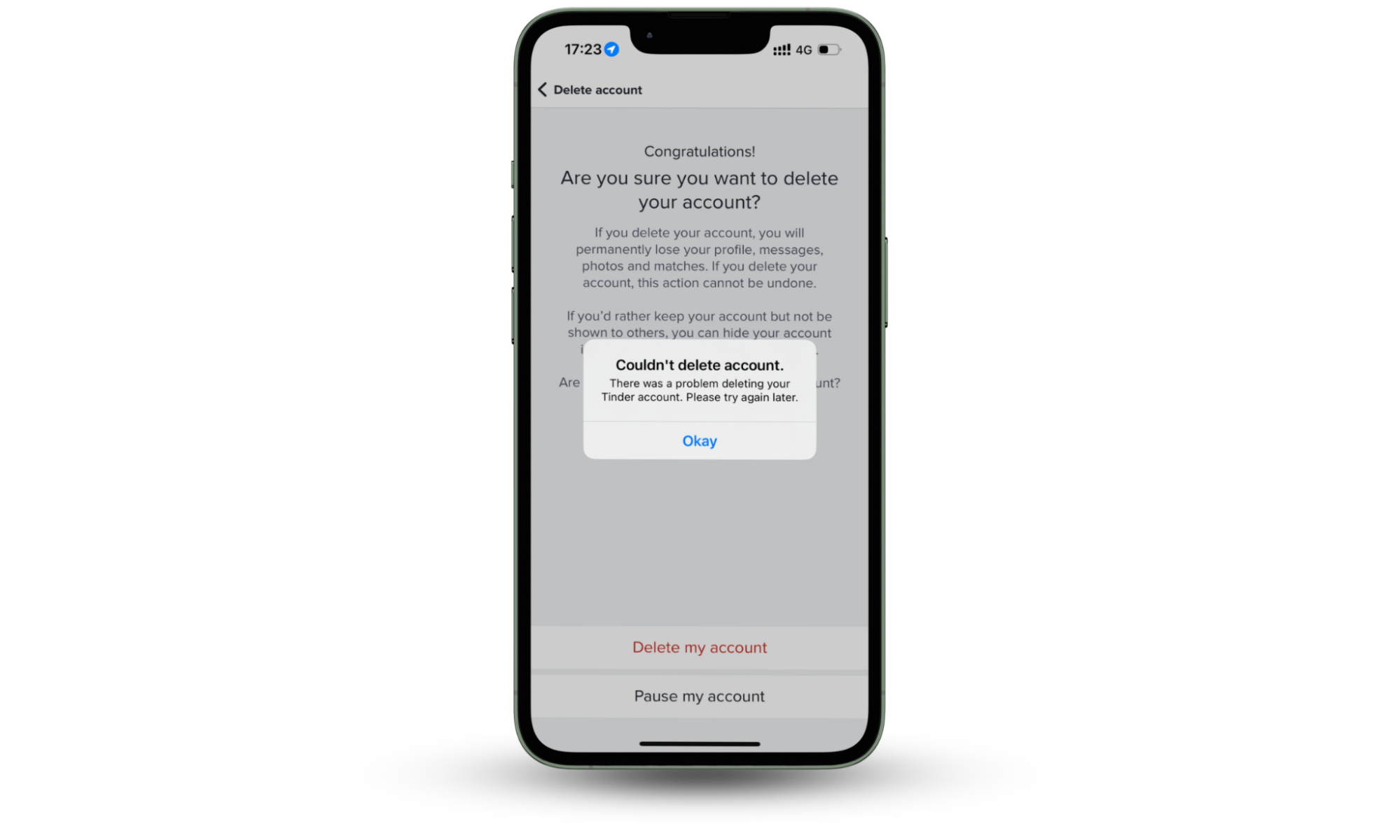
9. Ring doorbell
Could a doorbell camera app mishandle your data? Yes, it can. In 2020, the Electronic Frontier Foundation discovered four third-party trackers in the Ring doorbell app for Android, transmitting information like customer names, IP addresses, and device identifiers. Recipients of this data included Facebook and big data analytics firm AppsFlyer.
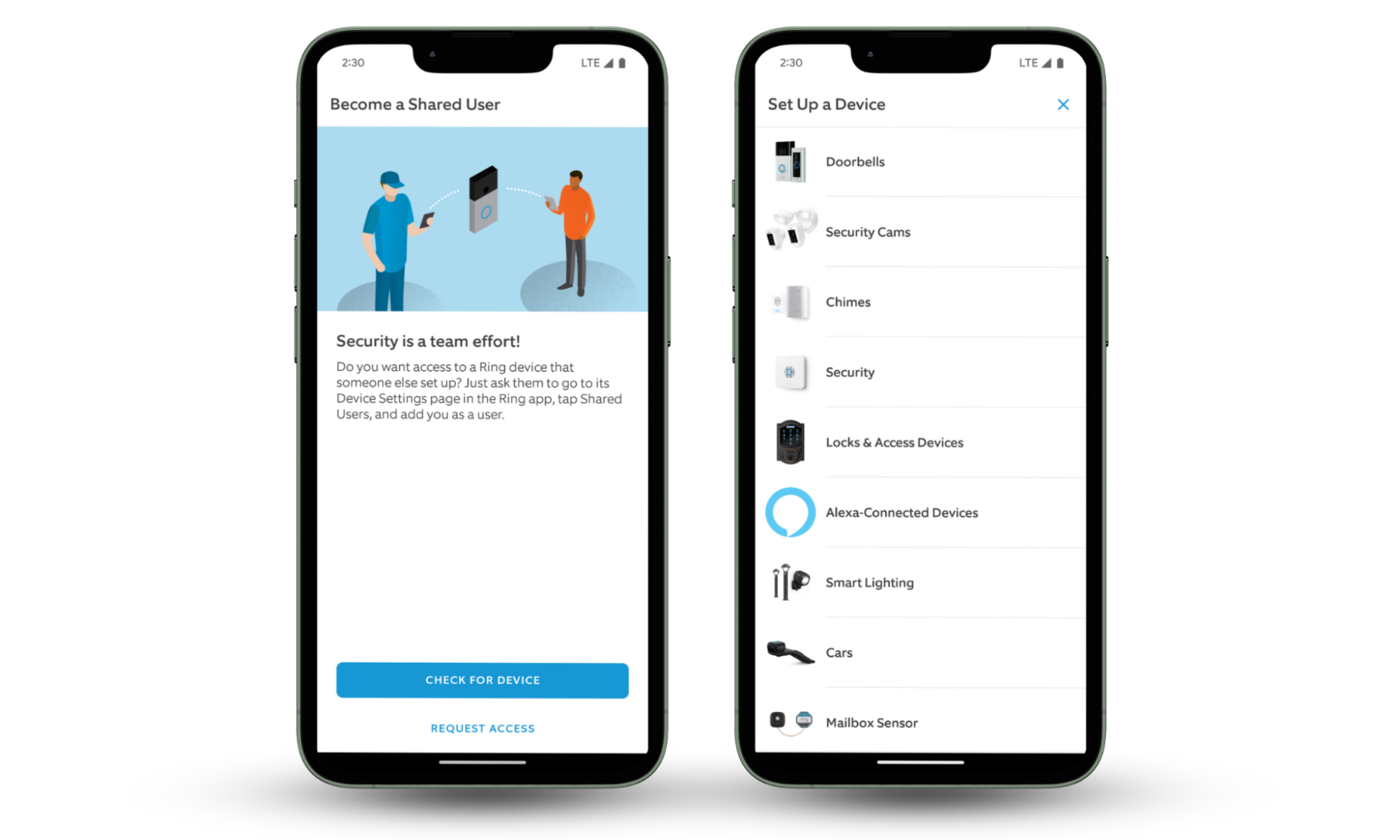
10. SpyBubblePro
SpyBubblePro is geared toward spying on cheating partners. It can retrieve deleted messages, transmit app usage stats, and monitor social media activities. The app is not listed on the App Store or Play Store and needs to be installed manually on the target device.
11. Phonsee
Phonsee claims to "ensure the well-being of your loved ones," but it's a highly invasive app that does much more than your standard monitoring tool. Besides real-time location tracking and geofencing, it supports call, SMS, and social media monitoring, logs keystrokes, records the screen, and operates stealthily.
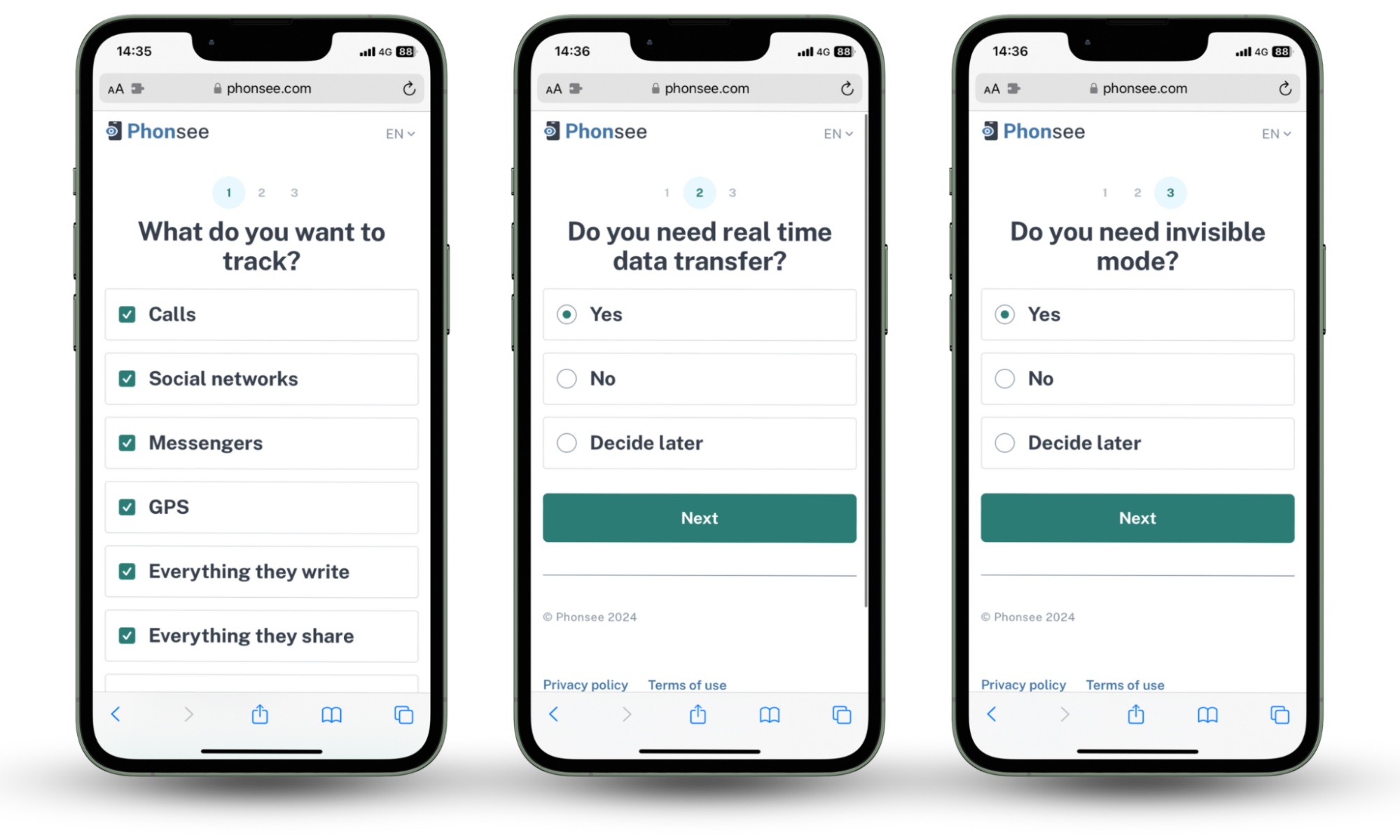
12. Highster Mobile
Highster Mobile can phone home various data types, such as texts and call logs, location info, social media interactions, and photos and videos. The app's website mentions that it shouldn't be used to monitor people without consent, but there are no checks to prevent misuse.
13. Geofinder
Geofinder is an online location tracker similar to Scannero. It sends an SMS with a malicious tracking link to the target device. If the recipient taps the link, Geofinder can get a hit on their location.
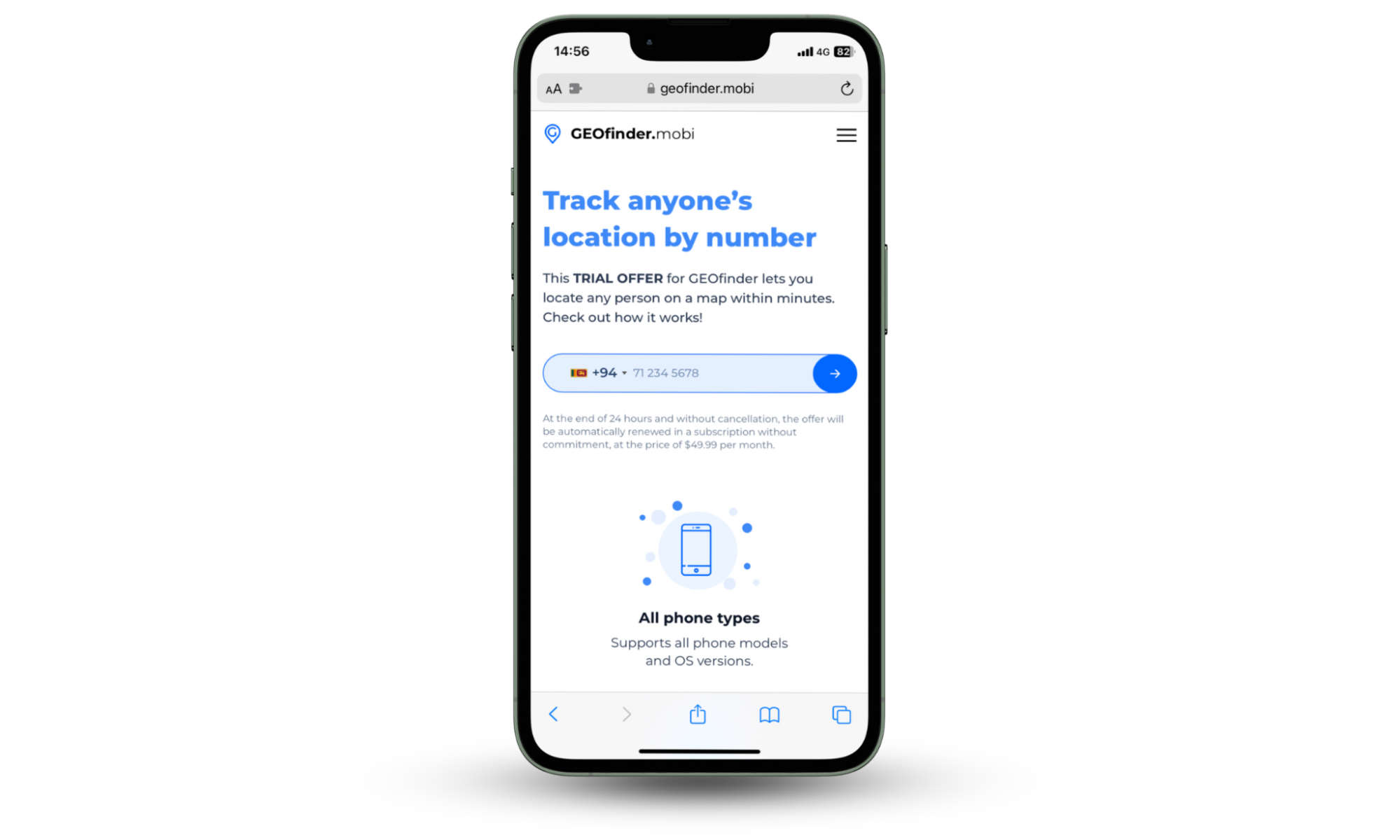
14. Candy Crush Saga
Candy Crush Saga is fun, addictive, and super-popular but notorious for harvesting data. The game's developer can collect personal information, such as how players behave in-game, purchase histories, interactions with other players, and location data, which it sells to third-party advertisers.
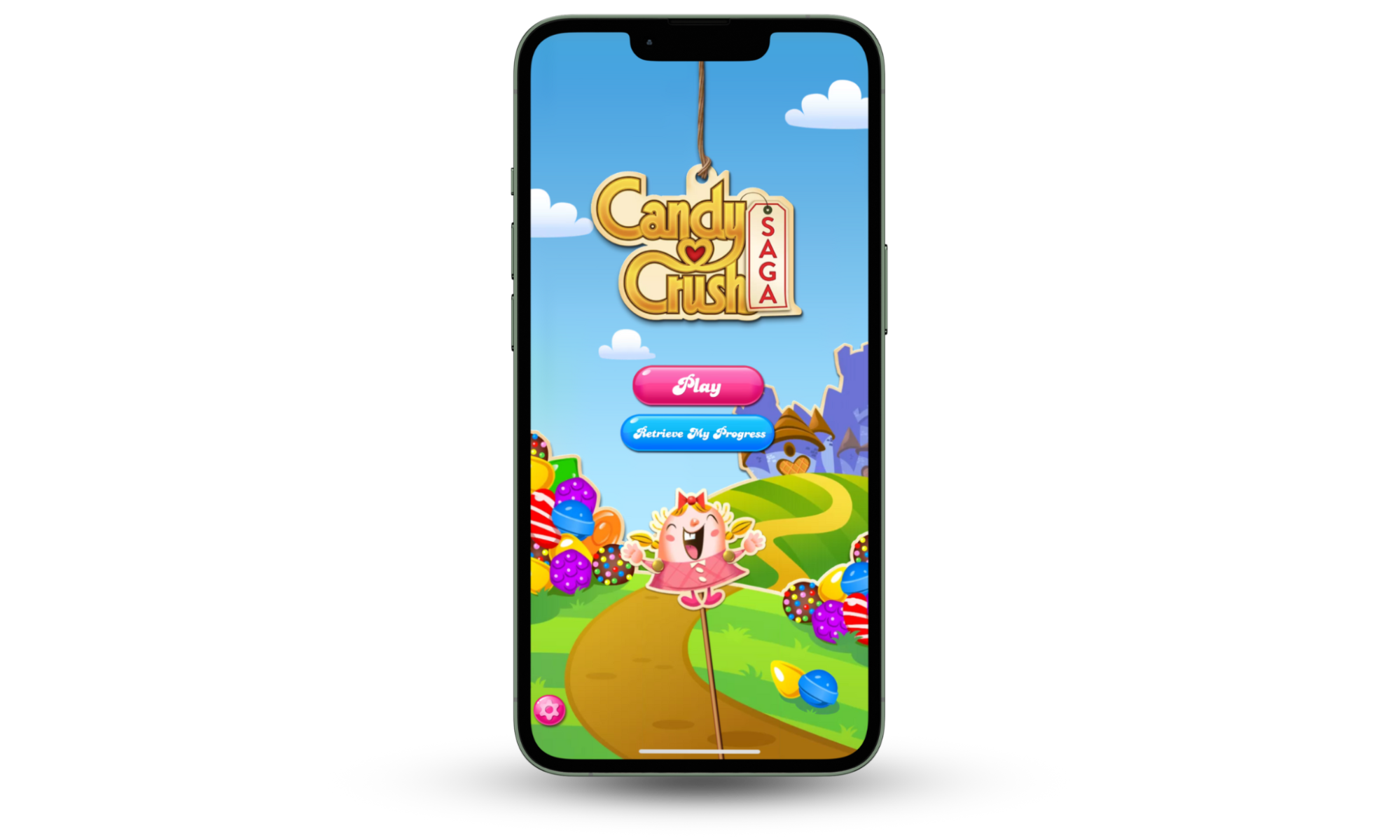
15. Facebook
Facebook profiles you by your gender, age, religious beliefs, and where you live. It also tracks how often you check in, the time you spend on the platform, and what content you engage with. But why? It makes money with ad sales, so the more it knows about you, the better it can tailor content and ads to your preferences.
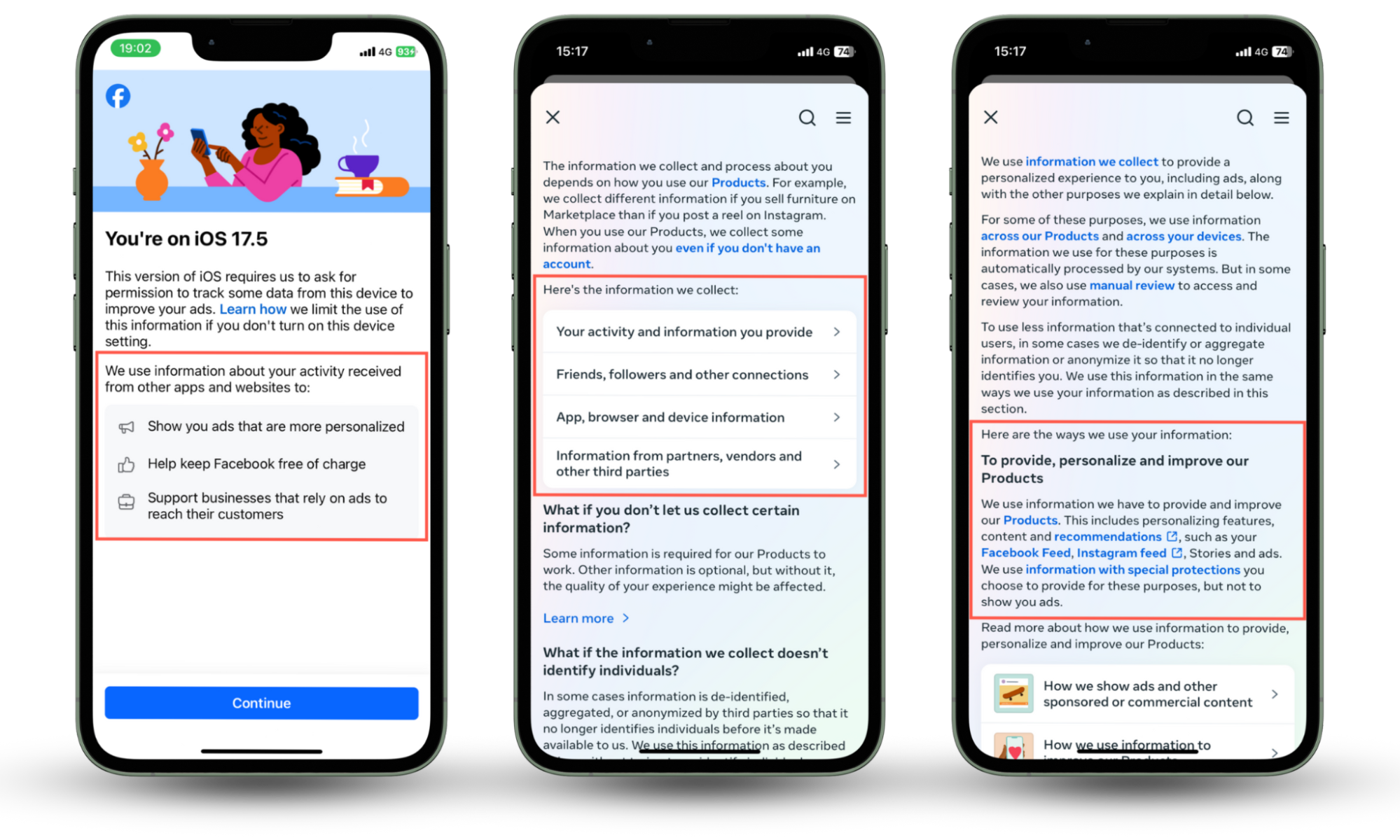
16. WhatsApp
WhatsApp shows if you're online or when you last were online, making it a go-to tool for any stalker. It also provides features that someone who knows your phone's passcode can exploit to spy on you. These include:
- Location sharing: The app's location-sharing capabilities can be tampered with to make your phone transmit its location to another device in real time.
- Account linking: You can link the app to a desktop device by scanning a QR code and monitoring your conversations as they happen.
On top of that, WhatsApp itself has privacy issues. Although the app can't spy on your conversations with other people due to end-to-end encryption, it doesn't respect what other data it has access to. These include your usage patterns, device information, and how you interact with businesses.
For instance, an update to WhatsApp's privacy policy in 2021 stated that it would share user data with its parent company, Facebook (now Meta). The same year, Ireland's Data Protection Commission fined WhatsApp $267 million for breaching GDPR regulations.
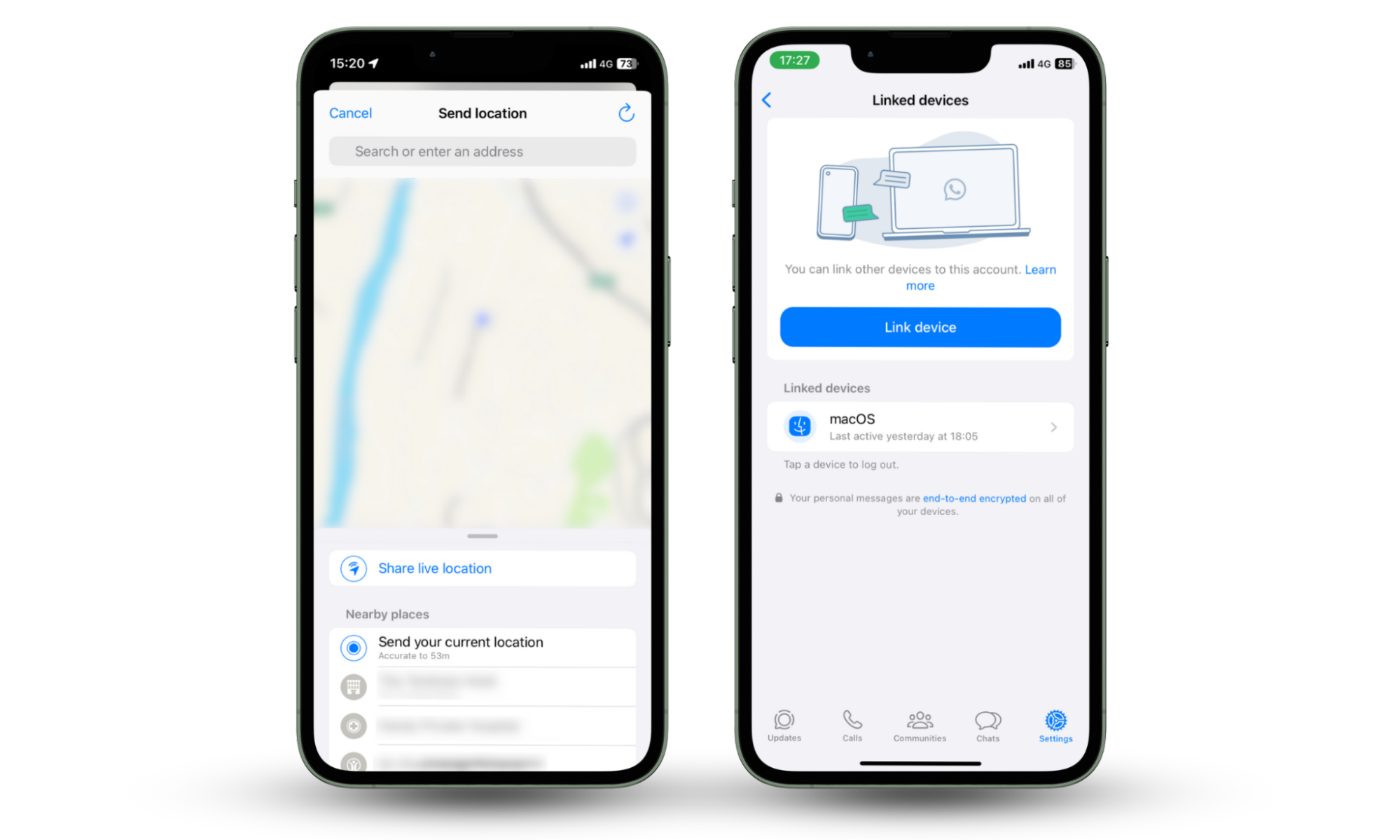
17. Instagram
Instagram is another Meta-owned app that anyone can use to stalk you unless you've set your profile to private. Location tags can reveal your whereabouts, stories can act as updates about your activities, and it's easy for someone to keep tabs on you by checking who you follow, what you comment on, and your preferences regarding every aspect of your life.
Like WhatsApp, Instagram has not been without controversy. In addition to sharing user data with Meta services like Facebook, it has been known to allow third-party ad partners to scrape user data and violate GDPR privacy laws to the tune of a €405 million penalty.
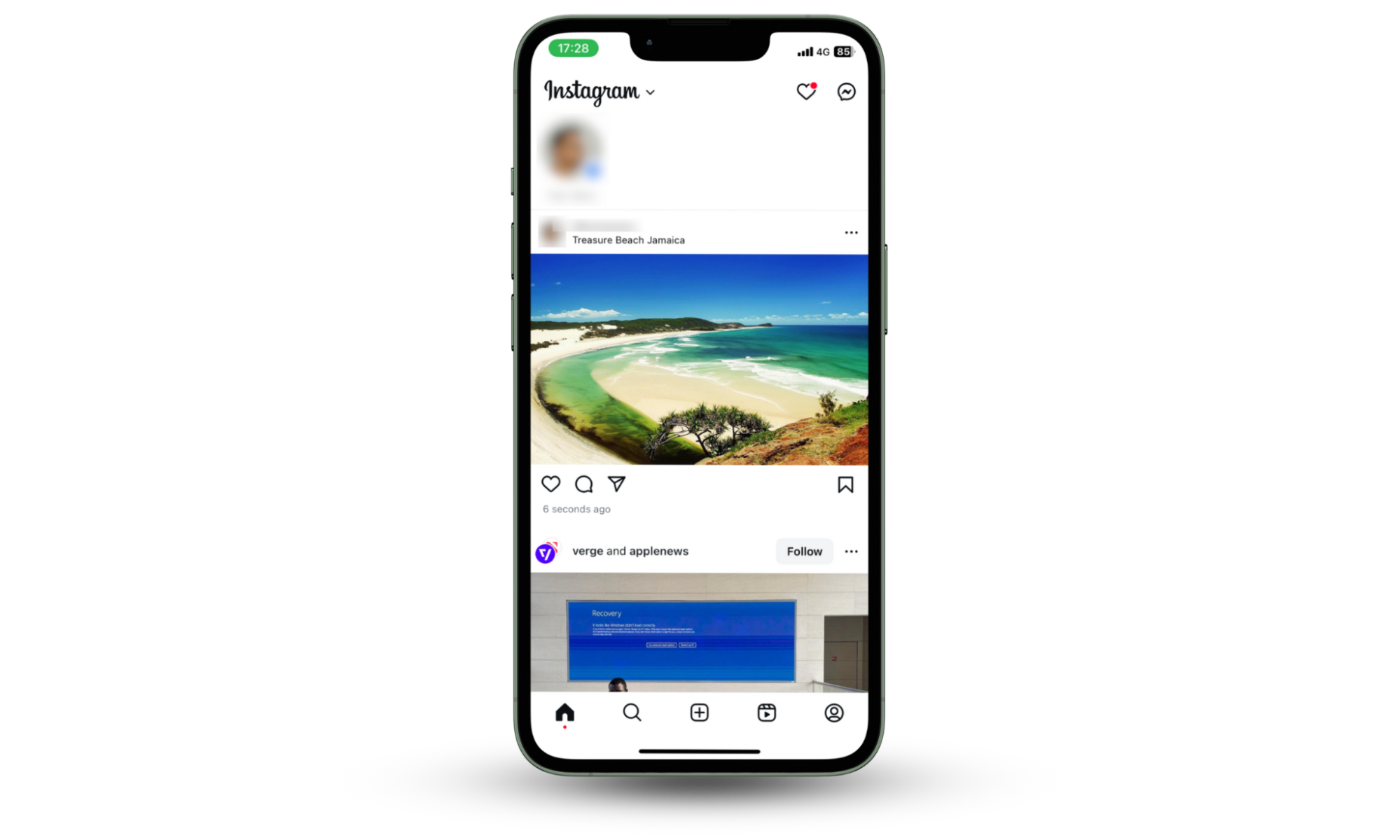
18. Angry Birds 2
Angry Birds 2 is not as popular as it used to be. However, it still has a sizable user base ripe for data harvesting—the game shares what it collects with third-party analytics companies and advertising partners.

19. Zombie Mod
If you're into zombie games, you should avoid Zombie Mod. It gathers personal data from your Google account, including information about your device, gameplay habits, and interactions with other players. And yes, it sells that data.
What are the categories of programs that can spy on you
It's possible to group apps that spy on you into several broad categories. Let's check them out.
1. Spyware
Spyware apps monitor your activity and transfer your data to someone else. They can be:
- Parental control apps: Intended to monitor children but can be easily installed from the official app stores and set up to spy on you. They track a device's location in real time, monitor which apps are being used and for how long, and record details of phone calls and text messages.
- Location-sharing apps: Allow friends and family to share locations, such as for meetups, but can be misused. For example, someone could open Find My on your iPhone without your permission and configure it to send your location to them in real time.
- Stalkerware apps: Advanced forms of spyware that are extremely privacy-invasive. They can be challenging to install because of requirements like jailbreaking or rooting, but once set up, they can fully mask their activity from you and can be difficult to detect. You can use anti-spyware programs, and choose the best anti-spyware for Android.
Recommended reading
Learn more about what Android apps are spyware and the types of apps that spy on iPhones.
2. Dating apps
Dating apps easily access vast amounts of highly sensitive information about their users. These include:
- Personal identifiers like names, birthdays, and addresses
- Location data and demographic information
- Behavioral data, interests, and preferences
- Health and personal habits
- Financial information
- Social media connections and communication data
The problem is that dating apps can record user data and sell the information to third parties. Grindr was even fined in 2021 by the Norwegian Data Protection Authority for sharing customers' health and location data with third parties.
3. Flashlight apps
If you hop over to the App Store or the Play Store, you can find dozens of flashlight apps from unfamiliar developers. That's because they are easy to build and set up to collect data. It's not unusual to run into a flashlight app asking you for permissions, such as to your location, camera, or microphone when it shouldn't need any of that to work.
4. Children's apps
Kids' apps tend to collect loads of data without parental consent by skirting app store guidelines and privacy protection policies. Video games monitor kids' gaming habits, video-sharing apps track their interests, and educational apps record learning patterns. This information is then used to make their products more appealing or addictive, or it can be sold to third parties for targeted advertising.
You can come across numerous studies and investigations online about the shady practices of kids' apps. For instance, the consumer group Comparitech found that at least one in four apps on Apple's App Store violates the COPPA (Children's Online Privacy Protection Act).
5. Social media apps
Social media apps are a haven for stalkers. Anyone can find much information about you by digging around your socials, including location data. For example, Snapchat displays your whereabouts through its SnapMap feature, while Instagram shows location tags in images. It gets worse because these apps also spy on their users.
Facebook, which we've already talked about, not only monitors what happens within the app but also tracks users across other companies' apps and websites. It has also been repeatedly fined by authorities, with the most recent being a record € 1.2 billion penalty by the Irish DPC for transferring personal data to the US.
6. Weather apps
Most Weather apps require access to your location to provide accurate forecasts. However, there's a risk that they may share the data with third parties, and for good reason. For instance, the city of Los Angeles sued the Weather Channel in 2020 for misleading users by sharing location data without proper disclosure.
7. Ring doorbell app
Ring cameras can access highly sensitive user information, including video feeds and audio conversations, but you can bet the data isn't in safe hands. For example, the Ring doorbell app for Android includes third-party trackers, which seriously compromise user privacy.
Ring, the company behind the cameras, has also experienced severe security incidents. A vulnerability in 2018 allowed Ring employees to access every customer's doorbell and indoor video feeds.
8. Shopping apps
Did you know your favorite shopping apps record pretty much everything about you? The types of data they collect include:
- Age, gender, and location
- Browsing and purchase histories
- Interests and preferences
- Payment and financial information
- IP addresses and device identifiers
- Usage patterns and time spent per session
Companies like Amazon, eBay, and Wish can process the data to build detailed profiles about you and influence your purchasing behavior with targeted content and advertisements.
9. Navigation apps
You probably don't think twice about letting navigation apps access your phone's GPS. But you might not know these apps could store your location history to find patterns in your routines and habits. While most of this data goes into improving the user experience, it can also be used to profile you for various purposes. For example, Google owns Google Maps, and since Google's primary business is advertising, you can imagine what could happen to your location data.
10. Browsers apps
Although browser apps don't necessarily spy on you, websites and extensions can. Websites can use cookies and tracking scripts to monitor your behavior and employ fingerprinting techniques to track you across multiple sites. Browser extensions can collect data without user consent or hijack the browser. Moreover, there is the risk of encountering phishing and malicious websites that steal information or infect your phone with spyware.
How to protect against spy apps
You can stop spying on your phone by taking various actions, such as checking for unusual software, installing the latest security updates, and opting out of data sharing. You should also learn how to know if someone is spying on your phone — it’s one of the first steps to regaining your privacy.
Here's how to protect yourself against apps that spy on you:
- Check for unusual apps: Regularly monitor your phone for suspicious apps and delete anything unusual you didn't install yourself.
- Don't tap on unknown links: Avoid tapping on links from unknown numbers, as these could be attempts to spy on your location or to infect your phone with spyware.
- Change your phone's passcode: Update the device passcode regularly if you suspect someone could tamper with your phone to install a monitoring tool.
- Install OS updates: iOS and Android updates patch many known security loopholes that malicious apps exploit to monitor you, so install them as soon as they become available.
- Update apps: Newer app updates could fix vulnerabilities that other apps could exploit to spy on you. For instance, browser updates can help prevent malicious extensions and websites from violating your privacy.
- Opt out of data sharing: Those apps you use everyday can't legally collect or share your data without consent. Use any available options to opt out of sharing your data.
- Be careful when giving permissions: Pay close attention to the permissions that apps request—e.g., location services—and provide them with access only to what's needed to work correctly.
- Tighten your social media privacy: Social media apps can expose a lot of information to would-be stalkers. Check your privacy settings to impose limits on what others can see.
- Use anti-spy software: A security solution could act as a safety net to prevent spyware from sneaking onto your phone.
Worried about slipping up? Clario AntiSpy monitors your phone for spyware, runs in the background, and provides continuous protection against malicious apps. You can even run a manual scan whenever you want to identify and fix vulnerabilities.
Here's how to run a Device System Check with Clario AntiSpy:
- Download Clario AntiSpy and sign in.
- Tap Scan under Device System Check.
- Follow the onscreen instructions to deal with any security threats it detects.
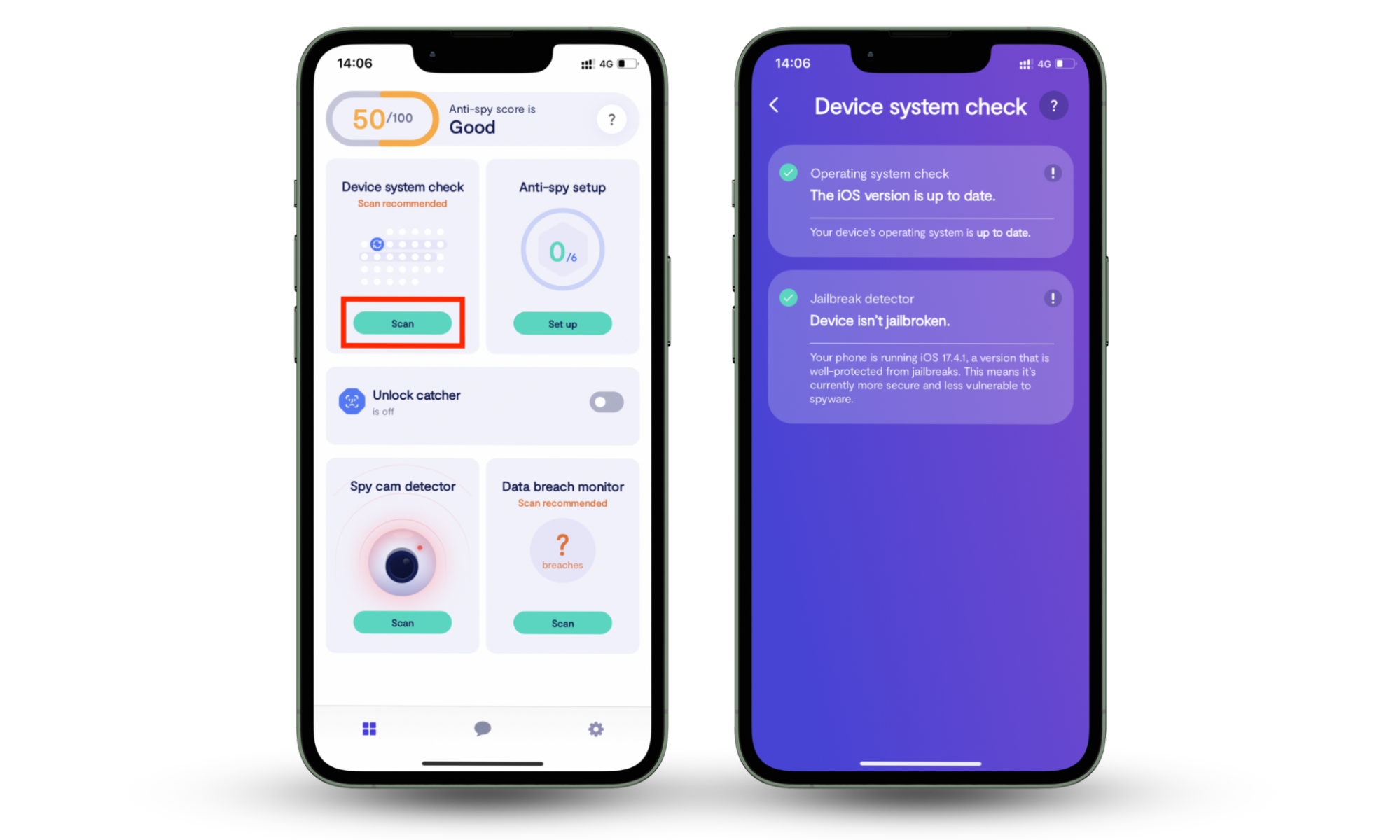
Clario AntiSpy also tightens your phone's security by checking for system software updates, prevents threats from recurring by guiding you through the basics of anti-spy protection, and provides 24/7 human assistance to resolve anti-spy issues.
Good to know
Spy apps are illegal when used on an adult without their consent—if you find someone monitoring you with spyware, you can contact law enforcement.
Conclusion
Any app can potentially spy on you, so it's up to you to keep yourself safe. Understanding how spy apps work can help you recognize them, while basic precautions like keeping your phone's software up-to-date can help protect your privacy. Using Clario Anti Spy can also shield you against apps that spy on you and improve your phone's overall security.
